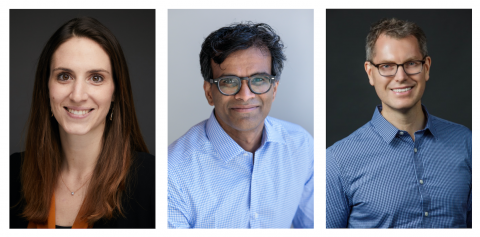
"Computational social science" is a relatively new field of study that has emerged in the past two decades. What defines the field? What fits within the field and what lies outside of it? Where should it go? We have assembled a panel of CSS pioneers to discuss these issues and more.
Sandra Matz is the David W. Zalaznick Associate Professor at Columbia Business School. She combines methodologies from psychology and computer science – including machine learning, experimental designs, online surveys, and field studies – to explore the relationships between people’s psychological characteristics (e.g. their personality, or mental health) and the digital footprints they leave with every step they take in the digital environment (e.g. their Facebook Likes or their credit card transactions).
Sendhil Mullainathan is the Roman Family University Professor of Computation and Behavioral Science at Chicago Booth. His current research uses machine learning to understand complex problems in human behavior, social policy, and especially medicine, where computational techniques have the potential to uncover biomedical insights from large-scale health data. In past work, he has combined insights from economics and behavioral science with causal inference tools—lab, field, and natural experiments—to study social problems such as discrimination and poverty. Mullainathan is a recipient of the MacArthur “Genius Grant,” and he writes regularly for the New York Times.
Duncan Watts is the Stevens University Professor and 23rd Penn Integrates Knowledge (PIK) Professor at the University of Pennsylvania, where he holds faculty appointments in the Department of Computer and Information Science, The Annenberg School of Communications, and the Operations, Information, and Decisions Department in the Wharton School. Watts’ research on network science and computational social science has appeared in a wide range of journals, including Nature, Science, and the American Journal of Sociology. He is also the author of three books including Six Degrees: The Science of a Connected Age and Everything Is Obvious: Once You Know The Answer. He holds a BSc in physics from the University of New South Wales and a PhD in theoretical and applied mechanics from Cornell University.
